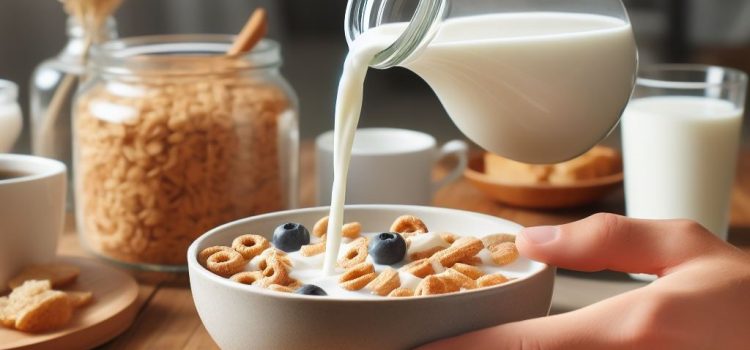
This is a free excerpt from one of Shortform’s Articles. We give you all the important information you need to know about current events and more.
Don't miss out on the whole story. Sign up for a free trial here .
Why is the dairy industry declining in the United States? How are plant-based milk alternatives impacting the dairy industry? What changes are on the horizon for the dairy industry and farmers?
The American dairy industry is facing an unprecedented decline, with milk consumption at an all-time low. Shifting dietary preferences, a growing concern for health and the environment, and government policies are fueling the decline and worsening American dairy farmers’ woes.
Keep reading for an insightful look into the US dairy industry.
People Aren’t Drinking Milk Anymore
In 2021, US dairy milk consumption hit an all time low of 16 gallons per person, down from 29 gallons in 1975, when record-keeping began. The dairy industry decline is especially prevalent among Gen Z consumers, who purchased 20% less milk than the national average in 2022. Advocates say that to save American dairy farms, policy changes are needed to protect the industry from unfavorable competition and to help small farmers survive against agribusiness.
The Switch to Nondairy Alternatives
The primary reason for dairy’s decline is a changing preference among consumers for non-dairy beverages. People are switching to milk-like beverages made from plants, or to beverages that don’t resemble milk at all.
1. Plant-based milk alternatives. Many Americans are abandoning cow’s milk in favor of plant-based milk substitutes such as almond, oat, coconut, rice, flax, hemp and soy.
Although most consumers still prefer dairy milk—whose sales hit $15.8 billion in 2023, compared to $2.5 billion for plant-based milk—substitutes have taken hold of the American psyche due to their perceived health benefits and eco-friendliness:
- Health benefits. Many Americans, particularly members of Gen Z, see non-dairy milk alternatives as healthier because they’re lower in calories, cholesterol, and saturated fat. They also appeal to individuals with lactose-intolerance, who represent a sizable portion of the population.
- Environmental benefits. Scientists say that plant-based alternatives are generally more eco-friendly than dairy milk, demanding less land and water, and generating far lower greenhouse gasses.
2. Other beverages. While plant-based milk alternatives are often seen as the primary threat to cow milk, experts say that dairy’s major challenge comes from non-milk beverages like water and specialty coffee drinks.
Government Policies Impact
Experts also attribute the slump in milk consumption to government policies. For example, the Healthy, Hunger-Free Kids Act of 2010 ousted whole or 2 percent milk from schools and mandated that all flavored milk be nonfat. This sparked a wave of social media posts criticizing school milk, contributing to a phenomenon that Gen Zers have dubbed “milk shame.”
Impact on Farmers
These trends bode poorly for American dairy farmers. In 2023, a substantial market dip combined with soaring feed and fuel expenditures and shrinking margins made for the most challenging year endured by US farmers since 2009. Extreme monopolization in the dairy sector has left many with limited options for where to sell their milk.
Looking Ahead
Some experts say that despite the challenges that the dairy industry faces, there’s reason for cautious optimism in 2024.
The dairy industry, hoping to counter competition, is pushing for food label changes, arguing that if a beverage doesn’t originate from a lactating animal, it shouldn’t be called “milk.” The Food and Drug Administration has proposed allowing plant-based drinks to keep the “milk” label but also to add labeling that highlights their nutritional differences from cow’s milk.
In the meantime, dairy farm advocates have called for comprehensive policy changes to save America’s dwindling farms—including curbing large agribusinesses’ influence and promoting transitions to organic production

Want to fast-track your learning? With Shortform, you’ll gain insights you won't find anywhere else .
Here's what you’ll get when you sign up for Shortform :
- Complicated ideas explained in simple and concise ways
- Smart analysis that connects what you’re reading to other key concepts
- Writing with zero fluff because we know how important your time is






